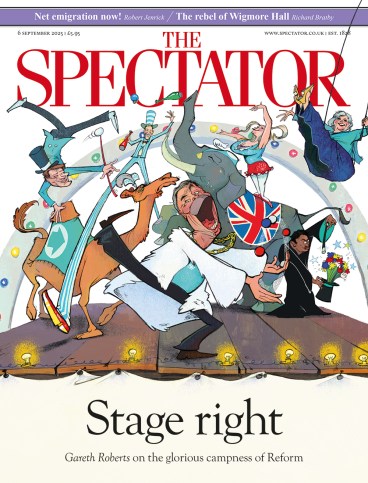
It’s good to be back in the unspeakable awfulness of Slough House, the decaying London office block in which the security service’s rejects do battle not only with the nation’s enemies but also with each other. Clown Town is Mick Herron’s ninth novel in the series, though he has explored different aspects of Slough House’s skewed universe in seven other books. It follows on from its series predecessor, Bad Actors.
The office is looking underpopulated these days. River Cartwright, the nearest thing the series has to a juvenile lead, is recovering from life-threatening injuries sustained in the line of duty and hoping against hope that they will not mean the end of his career as a spook. Sid Baker, his former colleague and current lover, has sensibly left the service altogether, though unfortunately the service has not left her. But their chief, the potty-mouthed, overweight Jackson Lamb, still presides over his surviving staff from the magnificent squalor of his top-floor office.
The novel opens with the brutal execution of a retired IRA informer by his traumatised former handlers, unjustly forced into retirement and semi-disgrace by the security service. The dead man, codenamed Pitchfork, was a sadist. The horrors he perpetrated were both enabled and concealed by his paymasters. No British government wants their cosy relationship with such a politically embarrassing monster to become public knowledge.
Unfortunately there still exists a cassette tape that implicates a very senior figure in the current government in this morally indefensible relationship. This is where the expendable inhabitants of Slough House come in. The dead man’s handlers hope to use the tape to extract reparations for themselves. The redoubtable Diana Taverner, now First Desk at the security service, has other ideas. And so has another recurring series character – Peter Judd, the shock-haired, classically educated populist politician who is currently in the wilderness and plotting his comeback.
From here, Herron unfolds his story with characteristic panache, moving in and out of different viewpoints. He has a way of being parsimonious with his information, preferring to dance the reader around a fact before slyly, almost reluctantly, permitting it to slither into the light of day. His plotting is equally fine-tuned. A complicated shoot-out in a nightclub, for example, is as neatly choreographed as a Whitehall farce – which is, of course, one way of describing the novel itself.
This isn’t just a superb thriller about dysfunctional spooks. In these dark days, there are not many novels of any sort that make you laugh aloud. But this is one of them. It’s partly down to the writing. Jackson Lamb, for example, is variously described as a ‘coiled sponge’ and ‘bowed over his desk like a Francis Bacon study in onanism’. It’s also linked to the chasm that lies between a character’s self-image and how he’s perceived by others. The most poignant case is the universally despised Roddy Ho, Slough House’s technical genius, who sees himself as a macho babe magnet.
Clown Town is a political novel. There’s a recently elected government, for example, which despite its substantial majority ‘hit the ground runny’, thanks to flaccid leadership. And there’s the loathsome Judd, whose self-satisfaction oozes from him ‘like slime from a slug’, and who is always on the alert for political or sexual advantage (‘A smile twerked his lips’).
In the hands of a lesser writer, this world would be a bleak place, albeit one with good jokes. The fact that it’s not bleak is because Herron pulls off a benign paradox. In a crisis Jackson Lamb is loyal to his joes, and they are loyal to each other. Somehow that means there’s still hope for us all.








Comments